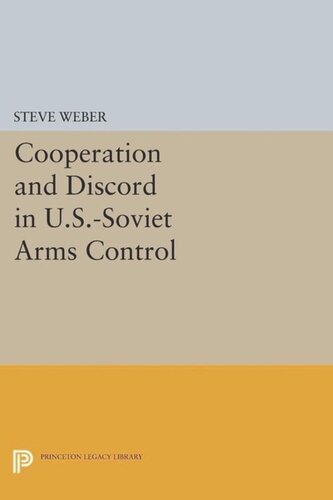

Most ebook files are in PDF format, so you can easily read them using various software such as Foxit Reader or directly on the Google Chrome browser.
Some ebook files are released by publishers in other formats such as .awz, .mobi, .epub, .fb2, etc. You may need to install specific software to read these formats on mobile/PC, such as Calibre.
Please read the tutorial at this link: https://ebookbell.com/faq
We offer FREE conversion to the popular formats you request; however, this may take some time. Therefore, right after payment, please email us, and we will try to provide the service as quickly as possible.
For some exceptional file formats or broken links (if any), please refrain from opening any disputes. Instead, email us first, and we will try to assist within a maximum of 6 hours.
EbookBell Team

4.0
16 reviewsIf international cooperation was difficult to achieve and to sustain during the Cold War, why then were two rival superpowers able to cooperate in placing limits on their central strategic weapons systems? Extending an empirical approach to game theory--particularly that developed by Robert Axelrod--Steve Weber argues that although nations employ many different types of strategies broadly consistent with game theory's "tit for tat," only strategies based on an ideal type of "enhanced contingent restraint" promoted cooperation in U.S.-Soviet arms control. As a theoretical analysis of the basic security behaviors of states, the book has implications that go beyond the three bilateral arms control cases Weber discusses--implications that remain important despite the end of superpower rivalry. "An important theoretical analysis of cooperation between the U.S. and the Soviet Union in the area of arms control... An excellent work on a subject that has received very little attention."--Choice
Originally published in 1991.
The Princeton Legacy Library uses the latest print-on-demand technology to again make available previously out-of-print books from the distinguished backlist of Princeton University Press. These editions preserve the original texts of these important books while presenting them in durable paperback and hardcover editions. The goal of the Princeton Legacy Library is to vastly increase access to the rich scholarly heritage found in the thousands of books published by Princeton University Press since its founding in 1905.